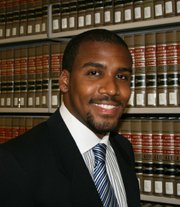I vehemently contend that the election of President Barack Obama is one of the best and worst single events in African American history. The sheer importance and symbolism of having an African American placed in the highest office of the most powerful country on earth demonstrates how far African Americans have progressed in a society that purposely placed them in the realm of inferior and sub-human less than 50 years ago.
On the other end of the pendulum, President Obama's political ascension has allowed a large portion of the population to assume that we, as a society, live in a post-racial utopia, filled with fairness and equality. This hubristic post-racial notion resides in the United States Supreme Court chambers, where five out of the nine justices stripped away decades of progress in the form of a legal opinion. In Shelby County v. Holder, the majority concluded section 4(b) of the Voting Rights Act of 1965 was outdated and, therefore, unconstitutional. Section 4(b), the preclearance section, provided oversight to specific regions that, in the recent past, implemented draconian laws for the purpose of minority voter disenfranchisement.
When our country celebrated 50 years since the march from Selma, Ala., to the state capitol in Montgomery, we were reminded of how tirelessly those before us fought for equality in the voting arena. That march birthed the VRA, which created voting access for all, free from literacy tests, intimidation and poll taxes.
However, just like the dichotomy attached to President Obama's election, Selma reminds us of how far we have to go. Such reminders that plague African American progress include voting barriers, systematic police harassment and brutality, low graduation rates, high prison population/recidivism, and generational poverty, which all stem from the effects of slavery and Jim Crow.
A tsunami of state-led initiatives followed the Shelby decision, implementing voter ID laws, shortening or even wiping away early voting and same-day registration. Looking at the timing and reasoning behind voter ID legislation through an objective lens, the idea of a post-racial utopia seems fictitious. The voter ID debate falls under two narratives. Proponents of ID laws argue integrity stemming from voter fraud, while dissenters, who actually present factual data that show little to no voter fraud, argue access, or lack thereof.
The timing behind such laws, which became suspiciously "imperative" right after the election of President Obama, also suggest deceitful motives that lean toward denying access for the purpose of winning an election rather than fighting against the mythical illusion of voter fraud. When deciding which argument holds more weight, the legal community often refers to a "balancing test." If a true balancing test were applied to voter ID legislation, it would show that voter disenfranchisement severely outweighs any potential voter fraud.
The preclearance section was deemed to be the most active provision of the VRA. However, now that we have an African American president, a handful of congressional representatives, one Supreme Court justice (that's debatable) and an average of one U.S. senator every 25 years (give or take), racism is no more, at least according to the Supreme Court majority and "post racial" supporters. I find this feeble-minded notion frustrating yet comical. When we disagree with how our laws are enforced, created or interpreted, we have a right to be heard through the voting process. Passionate tweets, op-eds, speeches and Facebook posts are of great benefit, but our society's power resides in the voting booth.
The following steps, in my opinion, would be the most realistic agent for change: (1) Meet the standards of the state law where you reside. (2) Get your ass up. (3) Go to your local voting booth. (4) And vote against the politicians who put up such asinine voting barriers. Selma marchers and countless others fought, bled and died for the most important and powerful aspect of American life. If we follow the simple steps I listed above, we, like them, will overcome.
Leslie McLemore II is a Jackson native, now in Washington, D.C. He is a proud graduate of Jackson State University, North Carolina Central University School of Law (J.D.) and American University Washington College of Law.



Comments
Use the comment form below to begin a discussion about this content.